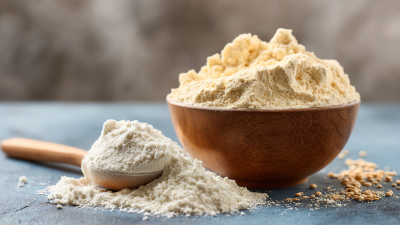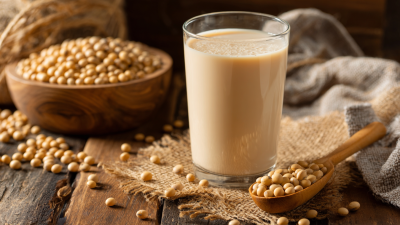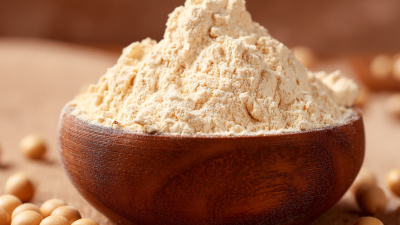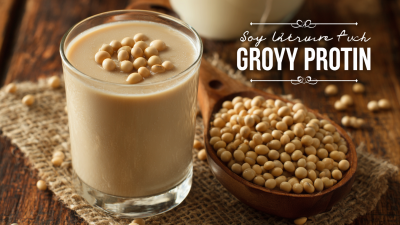The growing interest in plant-based diets has led to a surge in the popularity of various protein sources, with Soy Protein Concentrate emerging as a standout choice among health enthusiasts and nutritionists alike. According to a report by the Plant-Based Foods Association, the plant-based protein market is projected to reach $10.44 billion by 2022, with soy products consistently leading the charge due to their high protein content and versatility.
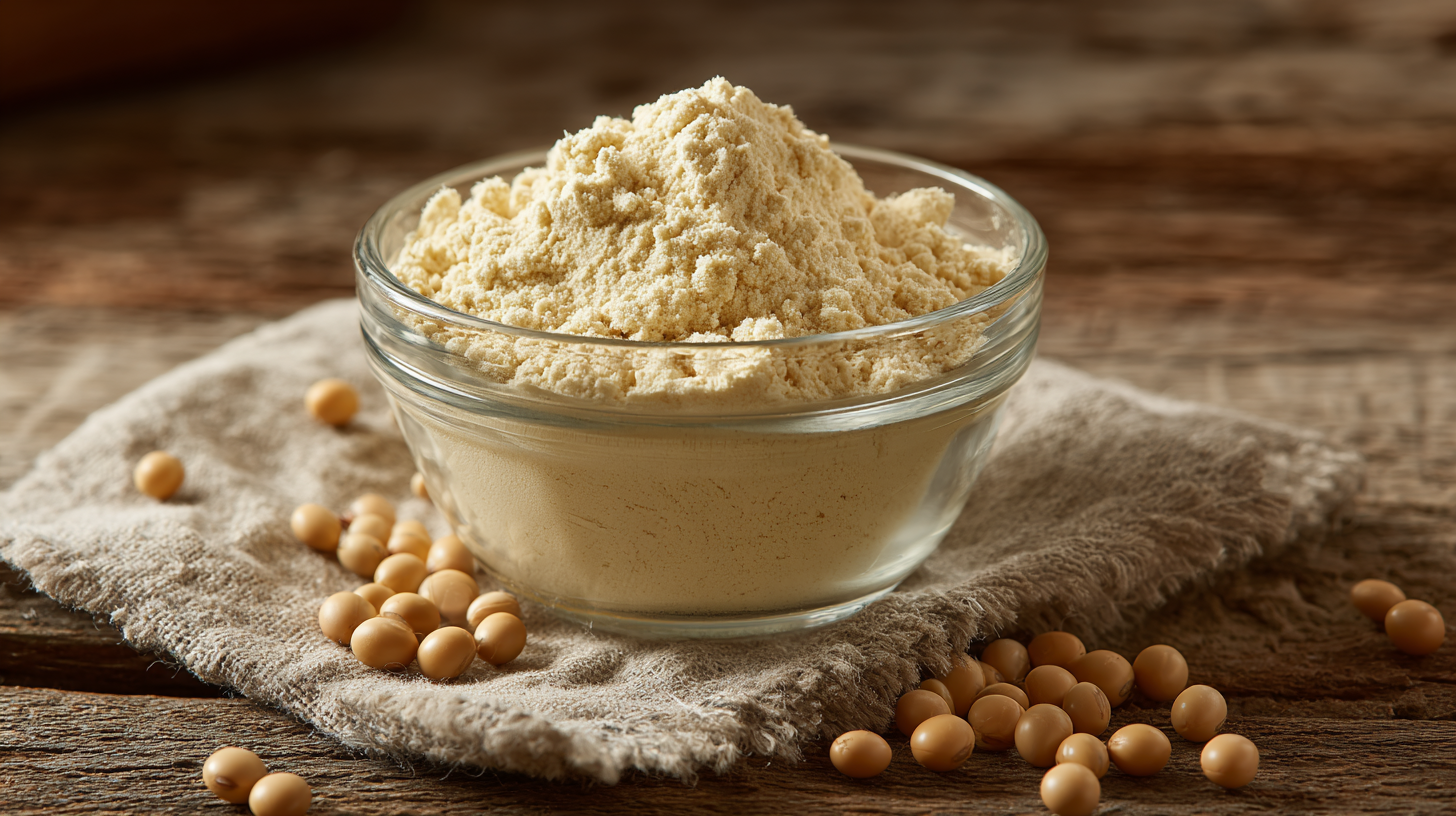 Soy Protein Concentrate, derived from defatted soybeans, provides an impressive 70-90% protein, making it an excellent alternative to animal-based proteins. Studies have shown that incorporating Soy Protein Concentrate into one's diet can support muscle health, weight management, and overall well-being, thanks to its rich amino acid profile and beneficial phytochemicals. As we unveil the benefits of Soy Protein Concentrate, it becomes clear why this superfood is gaining traction in both culinary and health circles.
Soy Protein Concentrate, derived from defatted soybeans, provides an impressive 70-90% protein, making it an excellent alternative to animal-based proteins. Studies have shown that incorporating Soy Protein Concentrate into one's diet can support muscle health, weight management, and overall well-being, thanks to its rich amino acid profile and beneficial phytochemicals. As we unveil the benefits of Soy Protein Concentrate, it becomes clear why this superfood is gaining traction in both culinary and health circles.
Soy protein concentrate has gained recognition as a nutritional powerhouse, particularly for its impressive protein content. Comprising approximately 70%–90% protein, it offers a rich source of essential amino acids that are crucial for muscle building and recovery. According to the USDA, a standard serving of soy protein concentrate contains about 28 grams of protein, making it an excellent option for vegetarians and those seeking to enhance their protein intake without relying on animal products. This high protein content not only supports muscle health but can also play a vital role in weight management by promoting satiety.
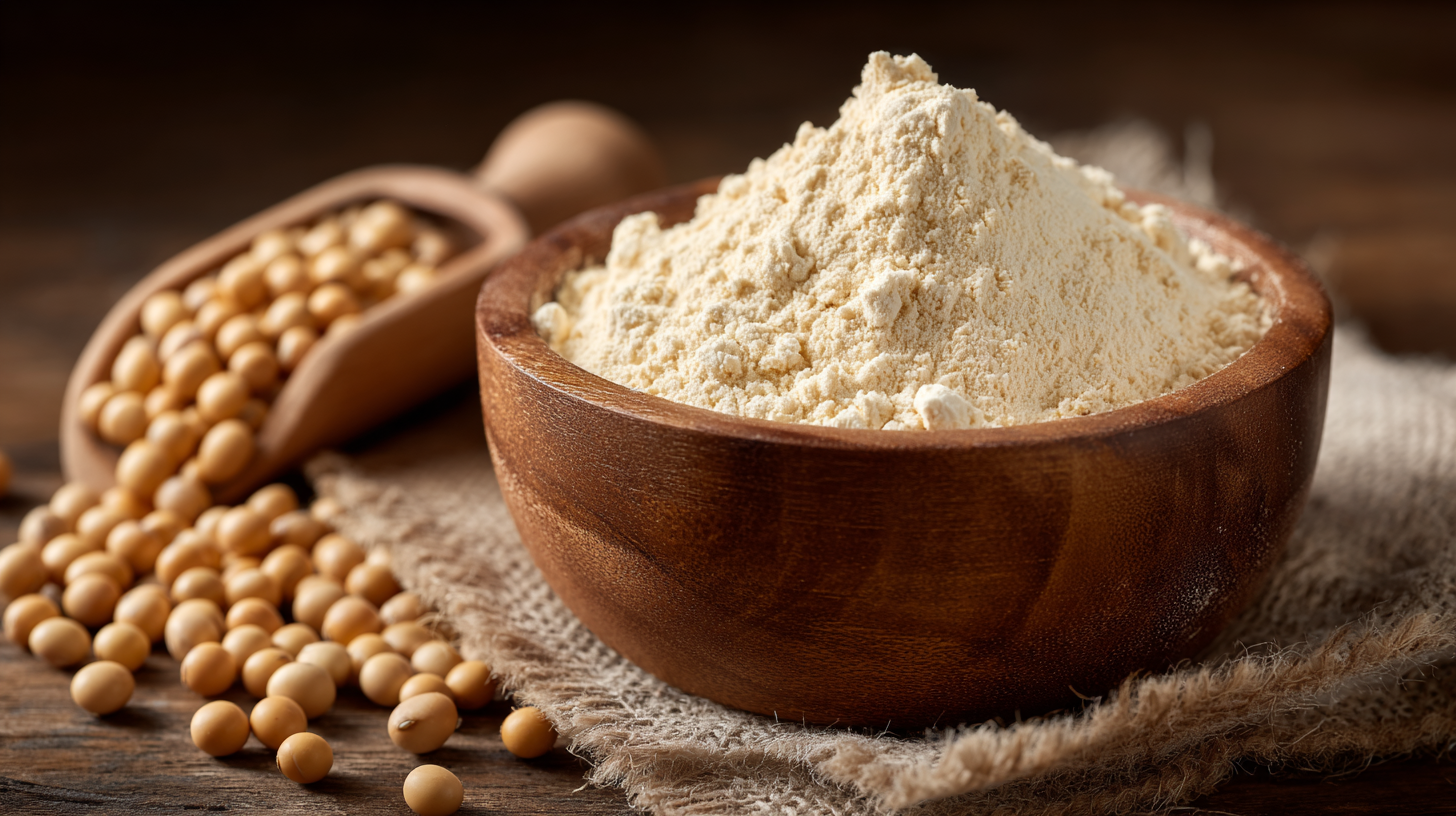
Moreover, soy protein concentrate is not just about protein; it also provides a host of other nutrients that contribute to overall health. Research published in the Journal of Nutrition highlights that foods rich in soy protein can help reduce cholesterol levels and improve heart health, thanks to the presence of phytosterols and isoflavones. The American Heart Association supports this, noting that incorporating soy protein can lead to lower LDL cholesterol, which is linked to cardiovascular disease.
With such compelling evidence, soy protein concentrate is not only a dietary staple for those looking to balance their nutrition but also a strategic ally in promoting long-term health and wellness.
Soy protein concentrate is a powerhouse ingredient that can easily be incorporated into your daily meals. Its high protein content and versatility make it a fantastic addition to various dishes. One simple way to include soy protein in your diet is by adding it to smoothies or shakes. Simply blend a scoop of soy protein concentrate with your favorite fruits, yogurt, and a dash of honey for a nutritious and filling breakfast or snack.
Another great culinary application is using soy protein to enhance baked goods. Incorporating soy protein into recipes for muffins, pancakes, or energy bars not only boosts the protein content but also adds moisture and a subtle nutty flavor. Substitute a portion of the flour with soy protein concentrate in your favorite recipes to make them more nutritious without compromising taste.
For those who enjoy cooking savory dishes, soy protein can be used as a meat substitute in stir-fries, tacos, or chili. Just rehydrate the soy protein with vegetable broth or your choice of sauce, and stir it into your dish for a hearty and satisfying meal. This not only diversifies your protein sources but also introduces exciting new flavors and textures to your cooking.
| Nutritional Component | Amount per 100g | Health Benefit | Culinary Applications |
|---|---|---|---|
| Protein | 90g | Supports muscle growth and repair | Smoothies, protein bars |
| Fiber | 9g | Promotes digestive health | Baking, soups |
| Iron | 5.5mg | Supports energy levels | Stir-fries, sauces |
| Calcium | 300mg | Strengthens bones | Salads, dips |
| Omega-3 Fatty Acids | 1.2g | Supports heart health | Dressings, spreads |
Soy protein concentrate has gained attention in recent years, particularly for its significant contributions to heart health and weight management. According to a study published in the "American Journal of Clinical Nutrition," incorporating soy protein into a balanced diet can lower LDL cholesterol levels by 3% to 5%. This reduction is vital since high LDL cholesterol is a leading risk factor for cardiovascular diseases. Furthermore, soy protein is rich in essential amino acids and has been linked to improved heart function, making it a valuable addition to a heart-healthy diet.
When it comes to weight management, soy protein concentrate can be an effective tool. A study in the "Journal of Nutrition" found that participants who included soy protein in their diet experienced reduced body fat and increased muscle mass over a 12-week period. With its high protein content and low glycemic index, soy protein can help individuals feel fuller for longer, reducing cravings and unnecessary snacking.
**Tip:** For those looking to incorporate more soy protein into their daily routine, consider adding soy milk to smoothies, using tofu in stir-fries, or choosing soy-based meat alternatives for a nutritious, plant-based meal.
**Tip:** Always check labels for soy protein content and opt for minimally processed products to maximize the health benefits while minimizing additives.
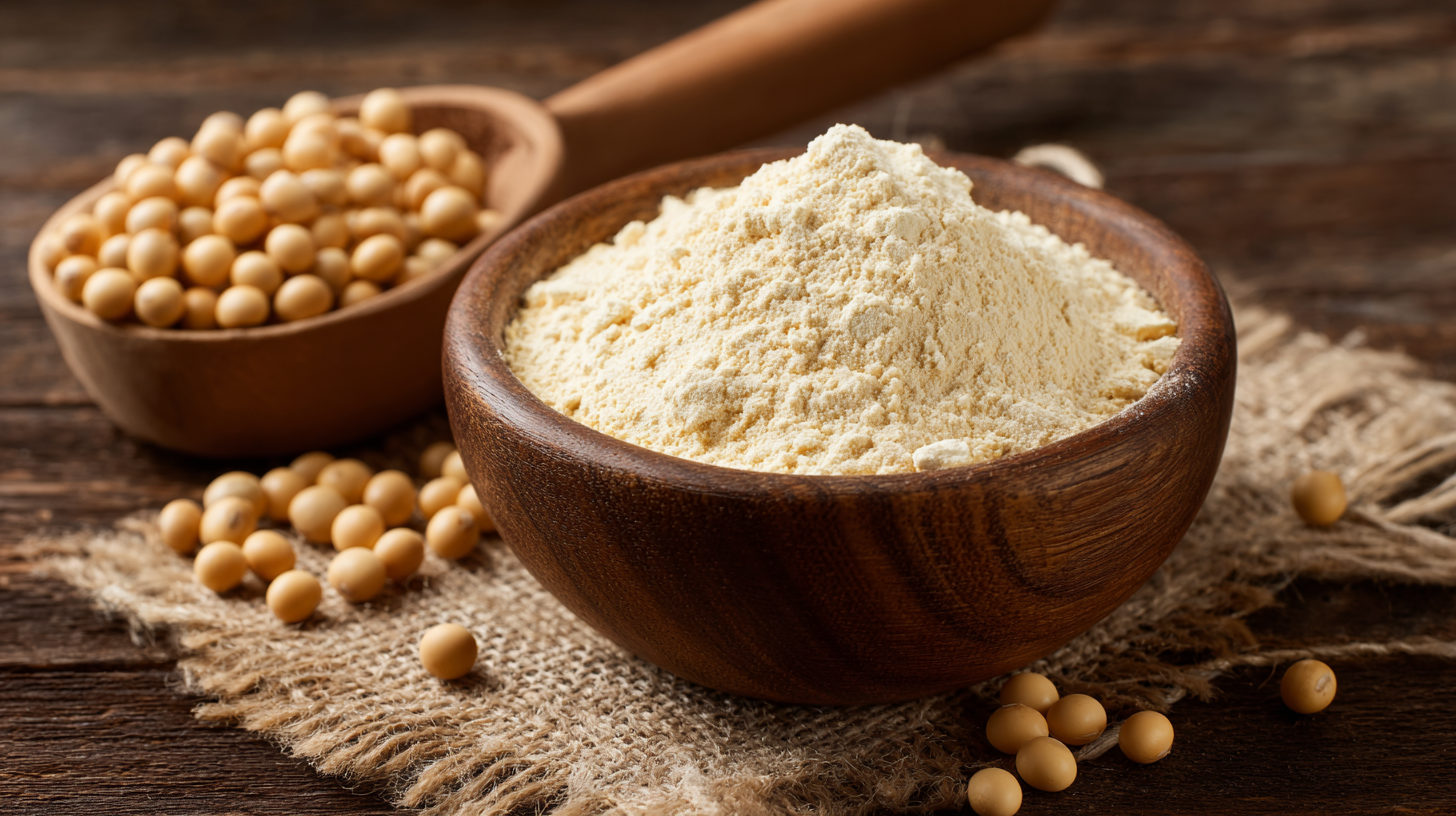
Soy protein concentrate is gaining recognition not only for its nutritional benefits but also for its significant environmental advantages. As we face increasing pressures to reduce our carbon footprint and promote sustainable living, soy protein concentrate emerges as an excellent alternative to traditional animal proteins. With a lower environmental impact throughout its production process, soy protein provides an effective solution to combat climate change. The life cycle assessment of soy protein emphasizes its energy efficiency and reduced emissions compared to meat production, making it a compelling choice for environmentally conscious consumers.
Moreover, the rise of meat analogues made from soy protein has revolutionized dietary choices, fostering a shift towards plant-based diets that are both nutritious and sustainable. Recent advancements in extrusion-based technologies enable the creation of soy-based meat alternatives that closely mimic the texture and flavor of traditional meats. This innovation not only addresses the increasing demand for healthy protein sources but also reflects a growing consumer acceptance of plant-based options. By choosing soy protein concentrate, individuals can enjoy a versatile and sustainable protein choice that contributes positively to both personal health and the planet.
When comparing soy protein concentrate to other plant-based proteins, it's essential to recognize its unique advantages. Soy protein concentrate is derived from defatted soybeans, resulting in a product that is not only rich in protein but also contains essential amino acids, making it a complete protein source. This quality sets it apart from many other plant-based proteins, such as pea or rice protein, which may lack certain amino acids necessary for optimal muscle repair and growth.
Another notable benefit of soy protein concentrate is its impressive nutrient profile. Beyond its protein content, it also includes beneficial compounds like isoflavones, which are associated with various health benefits, including hormone balance and heart health. In comparison to proteins like hemp or quinoa, which have their own nutritional perks, soy protein often comes at a lower cost and is widely available, making it an accessible choice for many individuals seeking to enhance their dietary protein intake.
Therefore, when evaluating plant-based protein options, soy protein concentrate emerges as a well-rounded contender with superior nutritional benefits and versatility for various culinary applications.
